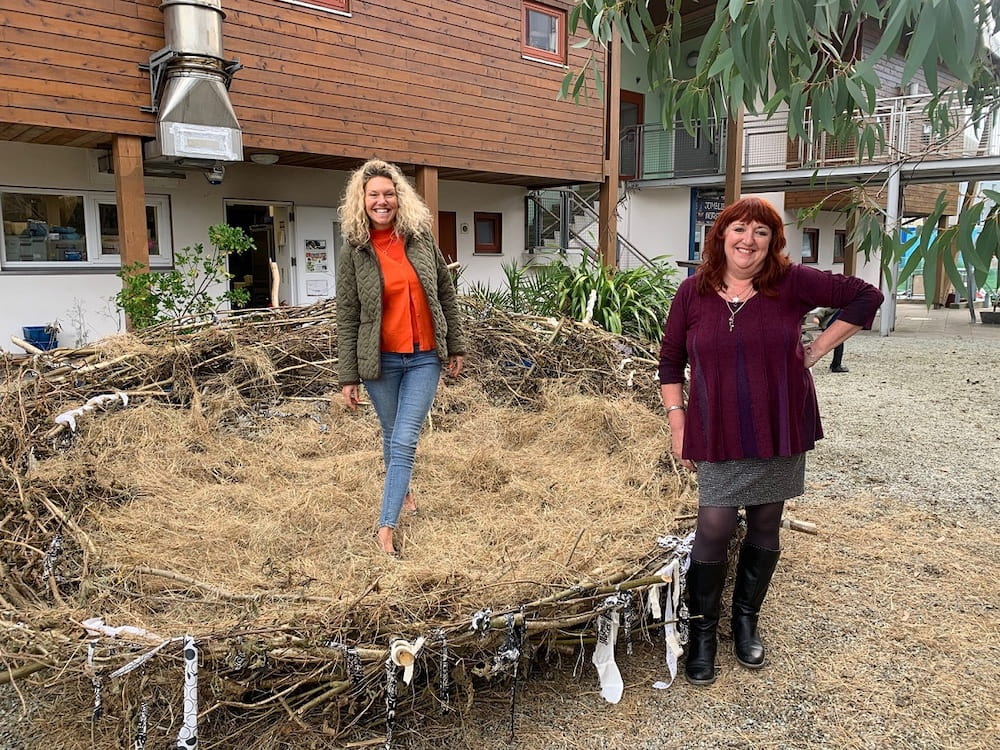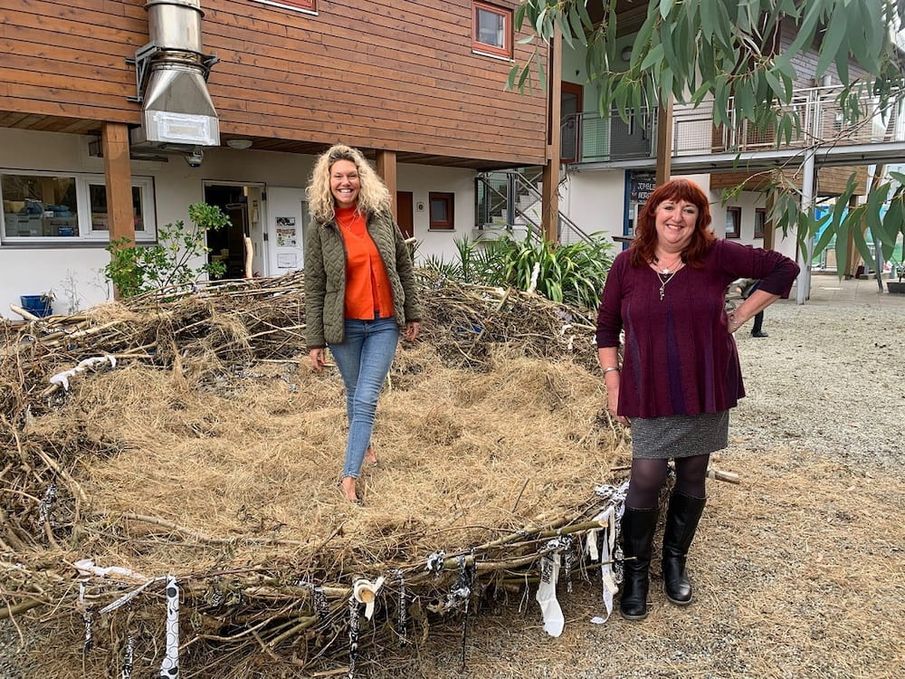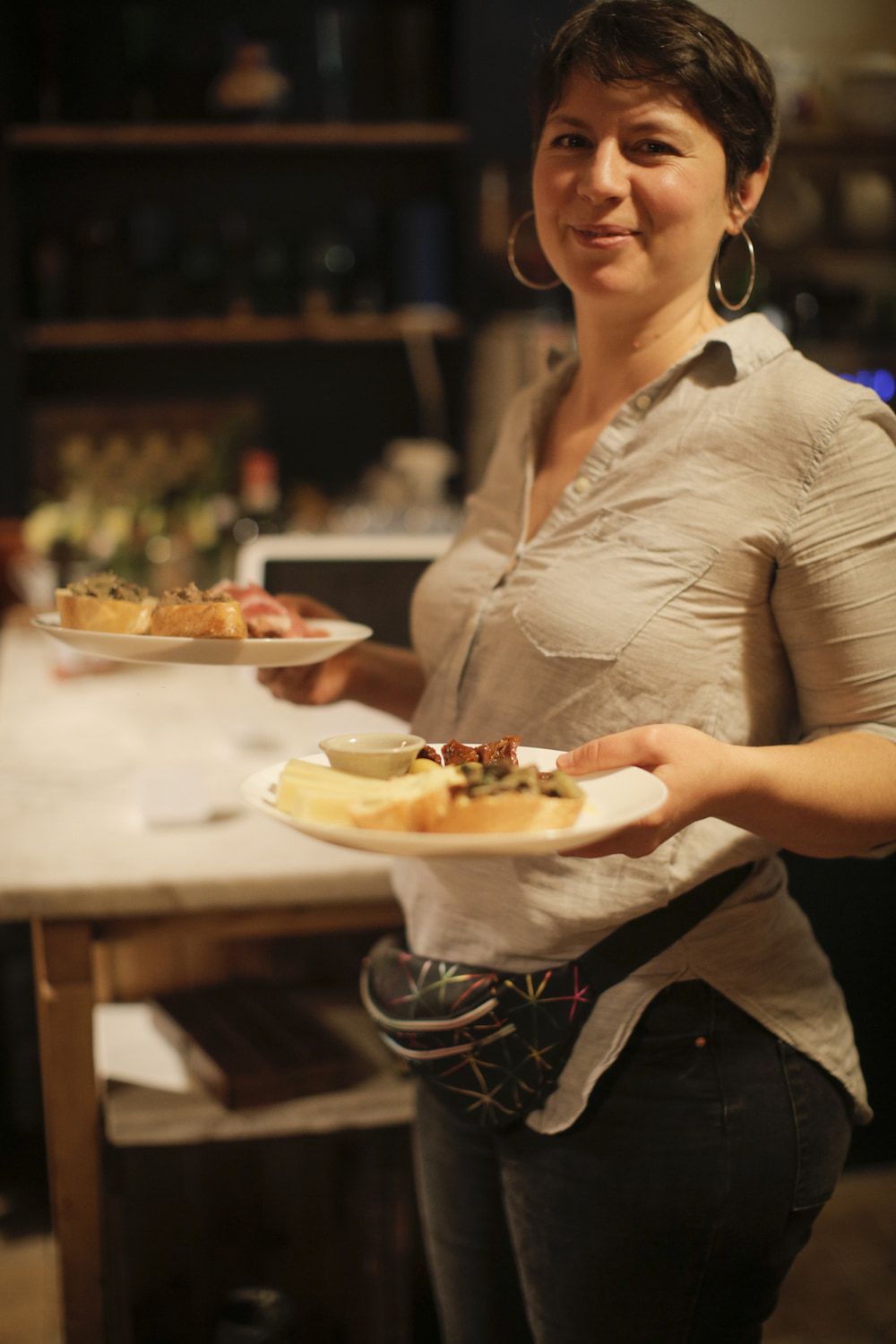Find some light in the dark with these positive news stories
Social enterprise cooks up tasty support for kinship families
According to the charity Family Rights Group, more than 180,000 children across the UK are being cared for by their kin – a grandparent, other relative, or family friend – due to their parents being unable to care for them. And while it’s an instinctive choice to make, it is a life-altering role that can come with many unique challenges.
Social worker Anna-Lou Manca has witnessed many kinship carers face financial and emotional difficulties over the course of her career, and it was for this reason that she founded Kinship Carers Hub in 2020 – a social enterprise on a mission to help kinship carers get the support they need to fulfil such a rewarding role.
The hub runs many projects – from employment opportunities to webinar training – which are all designed to provide guidance and support to kinship families, but their main project, Kinship Carers Cooking Club, is one combating social isolation through the power of food.
Each week, kinship families come together to cook and eat a meal, provided by the hub. Aside from the practical support provided through receiving groceries on a weekly basis, and learning about healthy, budget-friendly recipes, it also offers the opportunity to bond and access peer-to-peer support. One carer says: “It has allowed the children to see there are other children in the same situation as themselves, to show them that they aren’t alone.”
If you would like support as a kinship carer, visit kinshipcarershub.org
Anna-Lou, founder of Kinship-Hub. Photography | Urszula Soltys
Workplace bullying survivor launches campaign for new UK law
The effects of workplace bullying can last a lifetime, chipping away at our confidence and undermining our self-esteem. But Skevi Constantinou, one woman who has been there herself, has come out the other side, and is ready to call for major change to protect others.
The former executive assistant was targeted at work over her chronic autoimmune condition, to the point where she eventually felt afraid to go into the workplace. And, sadly, she’s not alone. But despite Trades Union Congress (TUC) figures that found nearly a third of people have been bullied at work, with more than one in three people going on to leave their job because of it, workplace bullying is not currently recognised as a crime by UK law, leaving the door open for the perpetrators to get away with this behaviour.
“This affects millions of people, not just in the UK but globally,” Skevi says. “It’s so important that these people are represented and not made to feel that this is normal – to go to work and be treated that way. Bullies need to be stopped in the workplace.”
She points to Sweden as an example of a country that already has laws that specifically prohibit bullying in the workplace.
“We all deserve to go to work and be respected in a safe environment,” she says. “Whilst my own experiences have shaped me in many ways, I want to help others as best as possible.”
Sign Skevi’s petition by visiting petition.parliament.uk
Sound asleep?
Is there a moment you wish you could forget? Well, scientists might just have found the secret. A team from the University of York explored the impact on our memory of playing sounds as we sleep, so whether it’s an embarrasing moment, a bad breakup, or an intrusive thought, we might find certain sounds help us let go in the future.
Try six sleep sounds to listen to tonight
Community nest built in time for winter
With the colder weather and longer nights finally here, it’s time to huddle together and embrace local community spirit. And a new, large, interactive art project in Cornwall looks set to do just that.
Arts Well, a social enterprise that advocates for the importance of creativity in health and wellbeing, unveiled its latest project at Jubilee Wharf in Penryn. A giant nest has been built with the help of neighbouring businesses and local organisations. Part of the national Fun Places initiative, designed to celebrate creativity and promote wellbeing throughout the year, the project puts playfulness at the heart of what it does.
Made using willow and hazel branches, along with the helping hands of plenty of locals, people were invited to hop in and experience the sense of calm and wellbeing created through being within the nest.
As programme coordinator Vicki Bampfield-Hammond explains, “A nest is a symbol of creativity and nurture, perfect to bring our working and residential communities together. We felt a giant nest was really appropriate, as everyone who wanted to get involved could, nurturing creativity, inclusivity, and community spirit.”
While it remained nestled in Jubilee Wharf throughout the holiday season, the nest will be moved to its permanent home in the new year. Watch this space!

Vicki and Jayne
Can our canine friends sniff out stress?
When we’re struggling, dogs just seem to know. Whether they jump on our laps for a cuddle or smother us with licks, our companions have a knack for cheering us up. And it turns out, there’s science behind it.
A new study from Queen’s University Belfast has found that dogs can smell stress in humans. When we get stressed, compounds change in our sweat and breath, and this is what our pets are sniffing out.
In the study, samples were gathered from participants before and after completing a difficult maths exercise. Dogs were able to detect which samples came before and after the activity. Ranging from 90% to 96.88%, the accuracy rate was even better than the researchers anticipated.
“While it is likely that in a real-life context dogs are picking up on our stress from a variety of context cues, we have shown, using a laboratory study, that there is a confirmed odour component that is likely contributing to dogs’ ability to sense when we are stressed,” says animal psychologist and study author Clara Wilson.
What we don’t know yet, is whether dogs understand that what they’re smelling is stress, or if they care. While their behaviour suggests they do, which is why they make great therapy animals, more research is needed.
Until then, we’ll conduct our own research with plenty of pet snuggles. For science.
Write on time
Letter writing seems to be a dying art in the digital age, despite 84% of kids saying they’d be excited to receive post. The survey, from The Diana Award and Nationwide, revealed that one in three children have never penned a letter, and a fifth haven’t received one in the past three months. In response, the organisations launched The Positivity Postbox, a scheme to encourage schoolkids to pen letters to children in partnering schools around the country. Sounds like a writing revival.



Comments